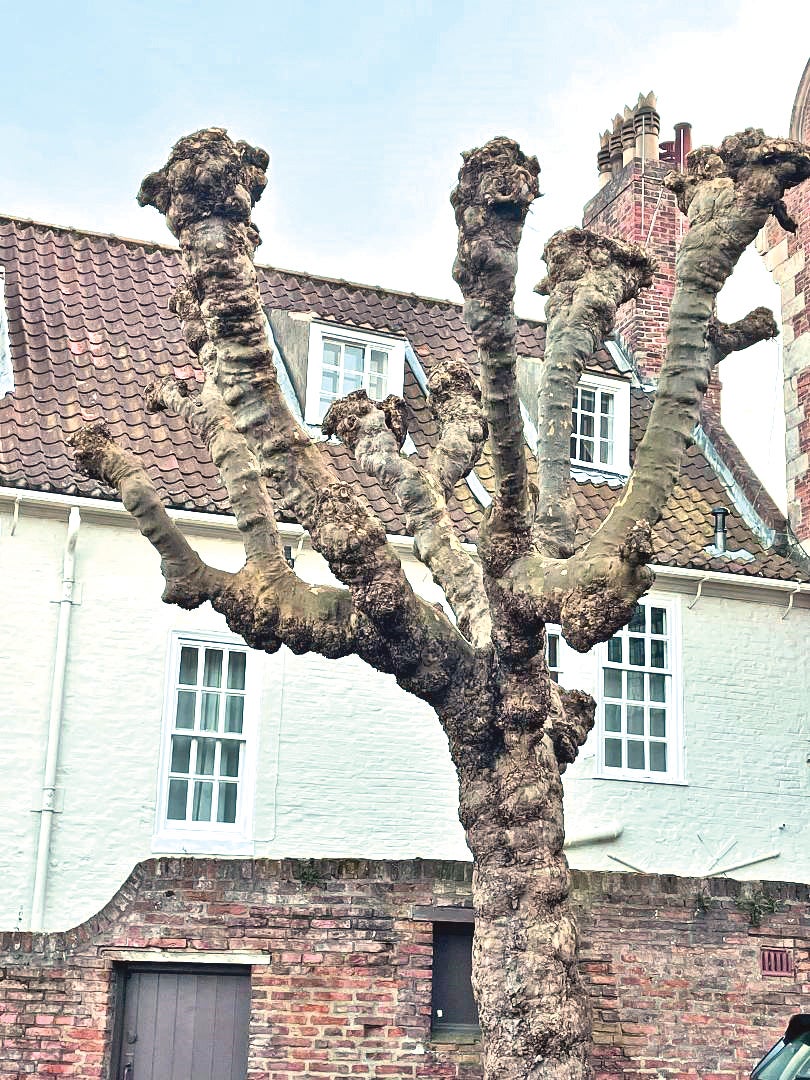Time to revisit the gardening bullies
Published 9:53 am Friday, March 10, 2023
Photo of a 200 year old pollard tree in England. (Rushing)
By Felder Rushing
Here I go again: Is pruning crape myrtles really the South’s worst horticultural crime? Pardon me, but it’s time to revisit a pet peeve of mine about gardening bullies.
For over 40 years now I have written weekly columns and hosted a radio program about the in and outs and how-to of home gardening and related issues. Being both a steeped-in-science university horticulturist and hardcore hands-on gardener, I have professional and personal things I sometimes need to get off my chest.
I could start with the last half of last century’s obsession with controlling lawn weeds through the overuse of newly developed herbicides. I have no problem with a manicured lawn, but I do with forcing or shaming others into that never-ending, unsustainable modern environmental disaster.
Truth is, there is no shame in having an imperfect “mow-what-grows” lawn, just like we all had until the 1960s or so before inexpensive herbicides.
Sure, it is possible to use herbicides effectively and safely without fear of getting sick or poisoning the environment. Eating red meat, bacon, fried foods, and salt, and inhaling too much wood smoke over a long time are all actually the same statistical risk as using Roundup; the key is in moderation and taking care.
Yet, my opinion, we should be free, even encouraged, to overlook a few winter and spring wildflowers to support starved bees, butterflies, and other pollinators in between regular mowings. More on this later.
There are lots of other widespread garden myths easily debunked with proven science: eggshells don’t add calcium to tomatoes, Epsom salt is not a cure-all for anything, purple martins and bats don’t actually eat a whole lot of mosquitoes, no plants can repel insects by just being planted around the patio, and on and on and on. Easily proven facts, not widespread and oft-repeated misinformation.
But I kicked off recently when a very good old friend, co-author of my best-selling book, and one of the top garden experts in the South, celebrated his 25th anniversary of coining and publicizing the horribly anti-horticultural, blatant taste-making attempt term crepe murder. For a quarter century now he has proclaimed it “the South’s worst horticultural crime.”
This in spite of how for centuries it has been practiced by well-trained horticulturists, highly skilled arborists, fruit growers, and landscape artists, and home gardeners, worldwide, all well within the purview of accepted horticulture practices.
True, the indiscriminate whacking back of a tree, known as dehorning, is not only unsightly but can lead to decay and lead to weak, brittle “witch broom” of twigs. Topping a tree is a shoddy looking treatment most often carried out by uninformed gardeners who don’t know any better.
But just last month I interviewed a celebrated Royal Horticulture Society arborist as she performed the annual task of cutting a nearly two-century old historic tree in York, England, back to big knobs.
This is called pollarding (kobushishitate in Japan), and continues to be practiced deliberately across Europe, every Shinto temple in Japan, and coast to coast in North America – even on a 105-year-old vitex tree at the headquarters of the American Horticulture Society. Not exactly tasteless people.
Being a trained arborist steeped in plant physiology, I can assure you that, whether grumpy gardeners who blindly repeat this judgmental, body-shaming stylistic meme like it or not, pollarding trees and shrubs – even crape myrtles – is not necessarily ignorant.
So do, or do not; just know that Southern Living’s taste making proclamations aren’t necessarily high-end horticulture practices. Compared to spraying harmless but crucial pollinator flowers in the lawn, pollarding is certainly not our worst horticultural crime.
Felder Rushing is a Mississippi author, columnist, and host of the “Gestalt Gardener” on MPB Think Radio. Email gardening questions to rushingfelder@yahoo.com.




